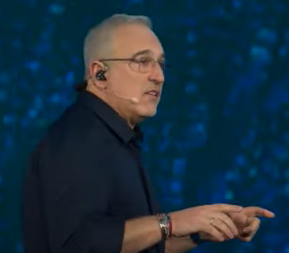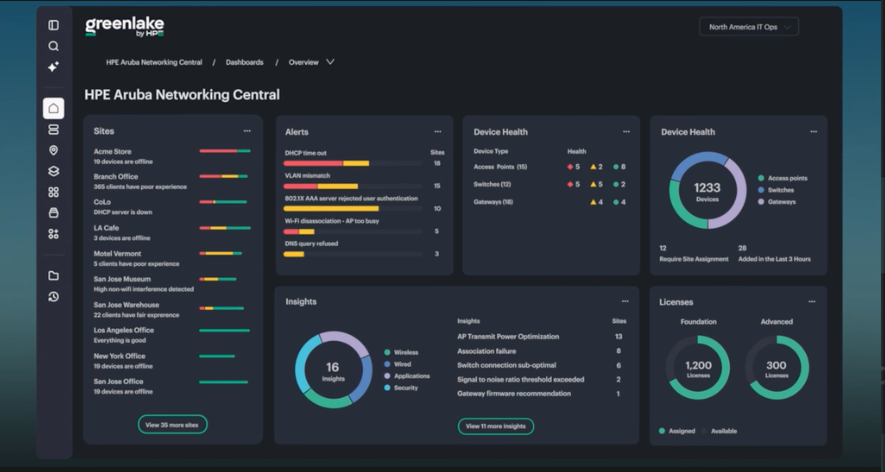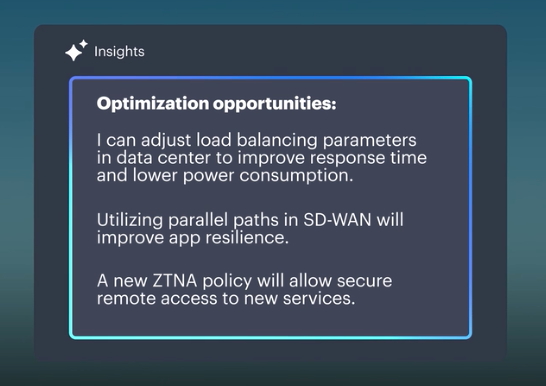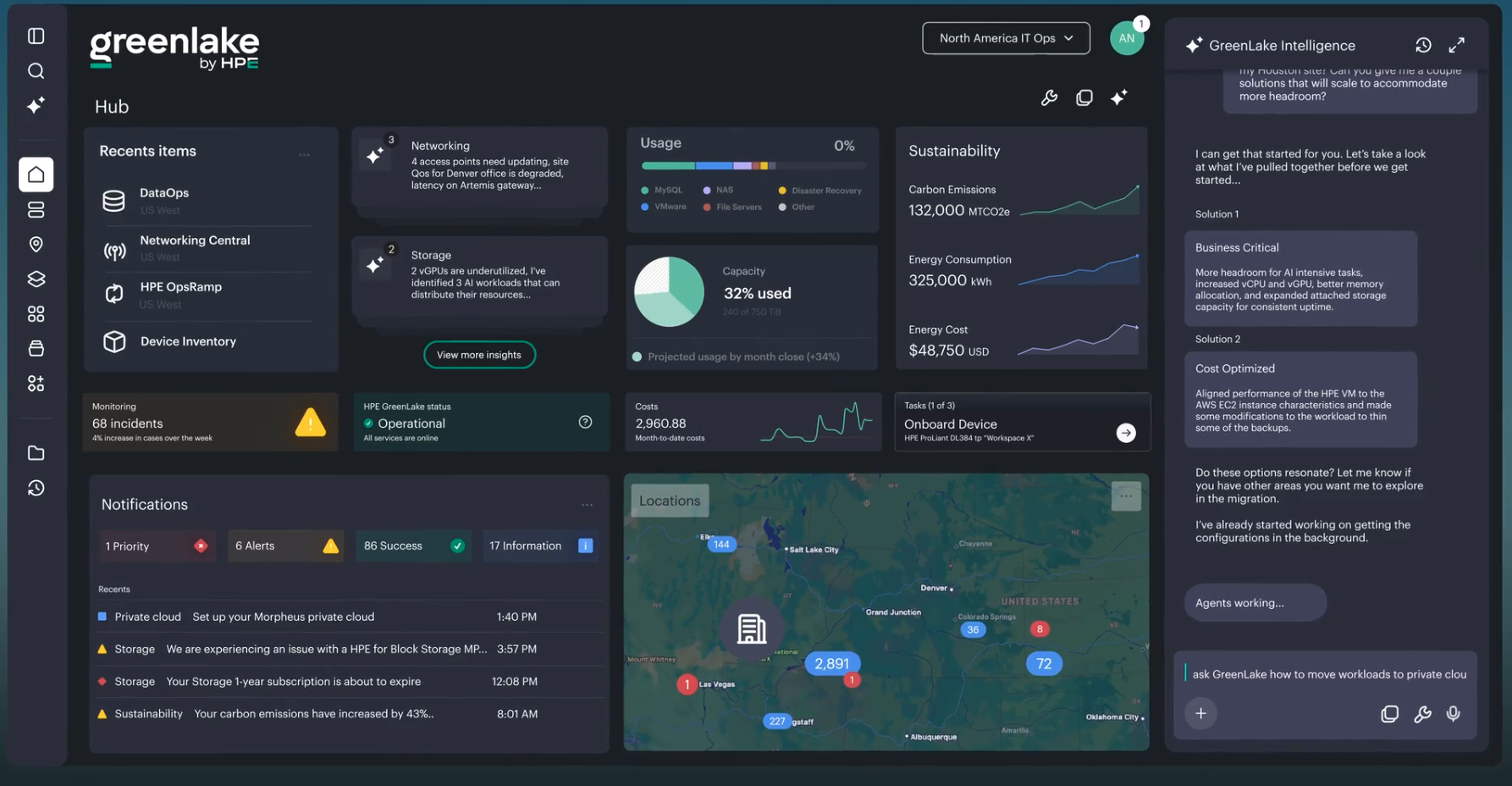HPE Bets Big on Agentic AI

Hewlett Packard Enterprise (HPE) threw its hat into the agentic AI ring this week with the announcement of GreenLake Intelligence at its HPE Discover event in Las Vegas. The potential outcome could impact the vendor’s future, with or without Juniper Networks.
A quick reminder: HPE’s GreenLake refers to on-premises storage, networking, compute, and virtualized services marketed as hybrid IT because they furnish a private cloud environment managed like a public cloud service by HPE. GreenLake installations also interact with AWS, Azure, Google Cloud, Red Hat, and VMware, among other third-party cloud providers.
GreenLake Intelligence, due out later this year, comprises a mesh of agents accessible via a GreenLake Copilot dashboard interface that work within the hardware and software elements of a GreenLake environment. The agents work with telemetry data issued by each element and respond with advice and automated actions.
That’s not to imply that IT staff aren’t needed. During his Tuesday keynote, HPE CEO Antonio Neri put it this way:
“With agentic AI, AI is no longer just a tool, it is actively engaged, automating workflows, managing real-time decisions, and driving business efficiency. Soon, it will be IT’s responsibility to manage a digital workforce of thousands of specialized AI agents working across the enterprise.”

HPE CEO Antonio Neri during his keynote in Las Vegas this week. Source: HPE via YouTube
HPE Aruba a “Central” Example
An example of how GreenLake Intelligence works is evident in HPE's Aruba Networking Central, the updated version of the vendor’s networking management software, which uses a mesh of GreenLake Intelligence AI agents to monitor the performance of HPE's access points and switches in the network, as shown in the screen below:

Source: HPE
As the software gauges the performance of various networked systems, GreenLake Intelligence comes up with suggested remediations as shown below, which when selected can automatically take effect, correcting network problems:

Source: HPE
Here’s how HPE CEO Antonio Neri described the agentic AI in Aruba Networking Central during his keynote: “[P]aired with a networking copilot, these AI agents leverage a collection of reasoning models context-tuned for security-first, AI-powered networking.”
Aruba Networking Central can be deployed on public cloud, virtual private cloud, or on-premises and connected or air-gapped for extra security, Neri said.
HPE Storage Is Also Agentified
HPE is also leveraging the Model Context Protocol (MCP) within its Alletra Storage MP X10000 system, an enterprise flash storage device that supports unstructured data, a crucial capability for AI workloads. The addition of MCP servers in the X10000 allows developers to create agents that can feed these workloads.
All of the above-mentioned capabilities come together in a unified GreenLake management interface, as shown below:

Source: HPE
The Trouble with Agents
HPE’s agentic AI announcements arrive amid as a chorus of skepticism from various industry voices. “AI agents are brittle. They lose track of what they’re doing. They get stuck in loops. They’re not ready for the enterprise and adoption will be much slower than the optimistic hypemen think,” wrote Dave Friedman, in a Substack newsletter this week titled “Why AI Agents Don’t Work.”
Even Gartner’s weighed in. "Most agentic AI projects right now are early stage experiments or proofs of concept that are mostly driven by hype and are often misapplied," said Anushree Verma, senior director analyst at Gartner, told Reuters this week.
Surely, it’s still early days, and HPE’s agentic AI must prove itself in the trenches. If it can, particularly in the case of HPE Aruba Networking Central, that could help boost the profile of HPE’s networking capabilities, which don’t yet compete effectively against Cisco.
Which brings us to…
The Juniper Question
As of now, the U.S. Department of Justice has set a trial date of July 9, 2025, for HPE to plead its case in the United States District Court for the Northern District of California, where the DOJ filed a suit to stop HPE’s planned $14 billion merger with Juniper Networks. If the deal falls through, HPE must pay Juniper an $815 million termination fee.
CEO Neri continues to maintain the merger will happen. “[W]e think we can win this case,” he told the publication CRN earlier this month. If it goes through, HPE’s GreenLake Intelligence could pair nicely with Juniper’s AI-infused network management system Mist, which has been a leading competitor to Aruba. But that’s a big “if.”
Regardless, HPE is hedging its bets nicely with the addition of agentic AI to Aruba and its GreenLake-managed systems. Depending on how well these enhancements sell to enterprises over the next few months, Juniper could be in a better position to synergize a Juniper acquisition—or face the future without it.
Futuriom Take: HPE’s addition of agentic AI to its GreenLake and Aruba lineups could boost sales—depending on how well the innovations deliver. Meanwhile, the prospect of a potential Juniper merger makes the technology more intriguing—if, that is, the merger goes through.

























